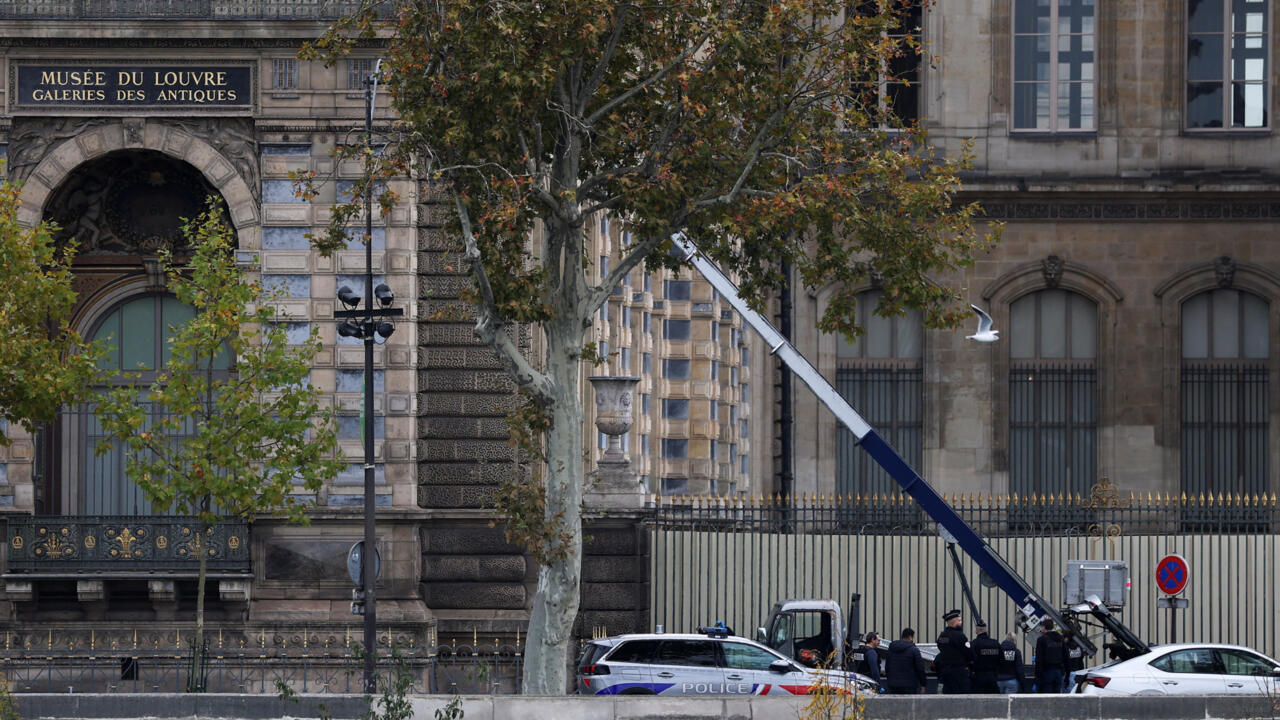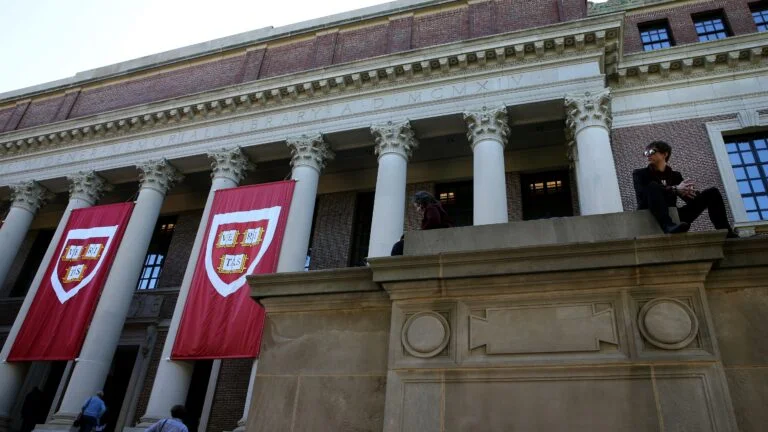Copyright rfi

"The two men are suspected of being the ones who entered the Apollo Gallery to seize jewels,” she told reporters. “They are currently being brought before investigating judges with a view to being charged with the offences of theft by an organised gang and criminal conspiracy.' The crimes carry jail terms of 15 years and 10 years respectively. Beccuau said the men, aged 34 and 39. would appear before magistrates and prosecutors would ask them to be remanded in custody. The younger man was of Algerian nationality and living in France, Beccuau said. The other was born in Aubervilliers, northern Paris, and was in the area when he was arrested on Saturday night shortly after the 34-year-old was arrested at Roissy Airport as he was preparing to travel on a one-way ticket to Algeria. Heist of the century Four people took less than eight minutes to steal jewels worth nearly €100 million on 19 October. They used a basket lift to scale the Louvre’s façade and forced open a window. Once inside the Galérie d’Apollon, they smashed display cases and made their way back out before speeding away on scooters. “If such a spectacular theft took place, it’s a failure — a failure for everyone,” said Culture Minister Rachida Dati during a two-and-a-half hour session with the Senate's culture committee on Tuesday night. “There were indeed security breaches and we will have to address them. Such an event cannot go without consequences or immediate action. We cannot just say: ‘Move along, nothing to see here.’” On Wednesday night, Beccuau ruled out help from inside the museum but admitted the possibility of “a wider network involving a mastermind or potential recipients”. “The jewels are, as I speak to you, not yet in our possession,” Beccuau added. “I want to remain hopeful that they will be recovered.” Just before Beccuau outlined the latest developments in the investigation into the theft, Paris' top police officer Patrice Faure told French senators that ageing security systems and delays to upgrade them had compromised the gallery. “A technological step has not been taken,” he said. He told senators that parts of the video network were still analog and produced lower-quality images that are slow to share in real time. A long-promised revamp — a €90 million project requiring roughly 60km of new cabling – would not be finished before 2029–2030, he said. Faure and his team said the first alert to police came not from the Louvre’s alarms but from a cyclist outside who dialled the emergency line after seeing helmeted men with a basket lift. “Officers arrived extremely fast,” Faure said, but he added the lag occurred earlier in the chain — from first detection, to museum security, to the emergency line, to police command. Search for solutions Faure pushed back on quick fixes. He rejected calls for a permanent police post inside the museum, warning it would set an unworkable precedent and do little against fast, mobile crews. “I am firmly opposed,” he said. “The issue is not a guard at a door; it is speeding the chain of alert.” He urged lawmakers to authorise tools currently off-limits: AI-based anomaly detection and object tracking to flag suspicious movements and follow scooters or gear across city cameras in real time.



